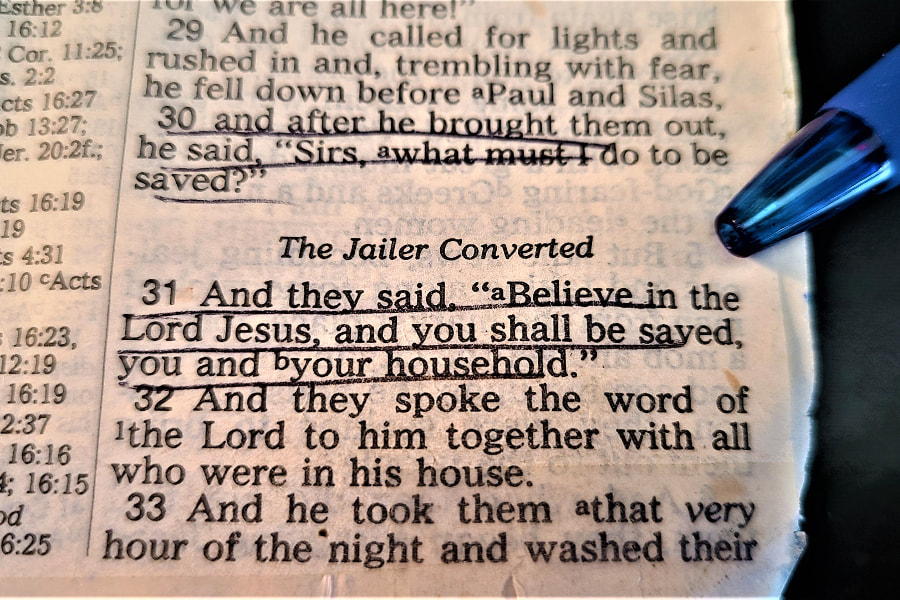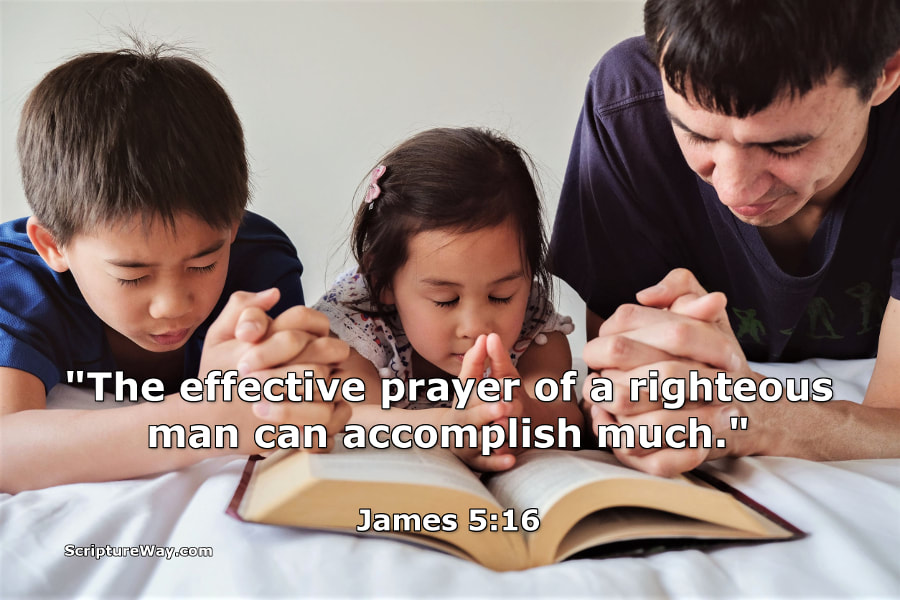(6) "Therefore humble yourselves under the mighty hand of God, that He may exalt you at the proper time, (7) casting all your anxiety on Him, because He cares for you." (1 Peter 5:6-7 NASB)
Consider. God willingly desires for us to cast all our anxiety on him. Have you cast all your anxiety -- all your worry and care -- on God?
Introduction
The Apostle Peter is writing to Jewish and Gentile Christians in Asia Minor (1 Peter 1:1-3). Peter recognizes that they are suffering for being Christians (1 Peter 4:12-19), and he advises them, "If you suffer as a Christian, do not be ashamed, but praise God that you bear that name" (1 Peter 4:16). Peter exhorts the elders in the churches to be witnesses of Christ's sufferings and to be shepherds of God's flock (1 Peter 5:1-2). He encourages young people to be subject to their elders, and he instructs all of them (and us today) to clothe themselves (ourselves) with humility because, "God opposes the proud but gives grace to the humble" (1 Peter 5:5).
Casting our anxiety on God and humility go together
Sometimes when we are anxious and are looking for an encouraging verse in the Bible such as 1 Peter 5:7, we might miss the point that humility and casting our anxiety on God go together. Peter begins verse 6 with "Humble yourselves under the mighty hand of God" (1 Peter 5:6). Then, in verse 7 he adds "casting all your anxiety on him" (1 Peter 5:7). The Greek word for "humble" in 1 Peter 5:6 is tapeinoó (pronounced tap-i-no'-o) and means to make low (Ref. 1) or being willing to take a low place (Ref. 2). When we humble ourselves before God, we recognize that we are not reliant on ourselves only but are dependent on God. God is the one who fills us, who lifts us up, and who cares for our every need (Ref. 3, Acts 1:8, Ephesians 5:18, James 4:10, Philippians 4:19, 1 Peter 5:7).
Casting is like throwing
The Greek word for "casting" in 1 Peter 5:7 is epiriptó (pronounced ep-ir-hrip'-to) and means to throw (Ref. 4). This word in Greek occurs only twice in the New Testament (Englishman's Concordance - Ref. 4). Before Jesus' triumphant entry into Jerusalem, Luke tells us, "They brought it (the colt) to Jesus, and they threw [cast] their coats on the colt and put Jesus on it" (Luke 19:35, parentheses and brackets added). In the same way the disciples throwing their coats on the colt was a one-way trip for the coats, casting our anxiety on Jesus should be a one-way trip for our anxiety.
We are to cast all of our anxiety -- not just parts of it -- on the Lord
In 1 Peter 5:7 the Greek word for "anxiety" is merimna (pronounced mer'-im-nah) which means cares and worries -- anything that fractures and divides a person's (our) being into parts (HELPS Word-studies - Ref. 5). In 1 Peter 5:7, merimna [anxiety] is singular and unites all of our cares and worries into one whole (Ref. 5, Ref. 6). Jesus' explanation of the parable of the sower in Matthew uses the same singular form of merimna. "And the one on whom seed was sown among the thorns, this is the one who hears the word, and the worry [anxiety] of the world and the deceitfulness of wealth choke the word, and it becomes unfruitful (Matthew 13:22, brackets added). The fact that our anxiety -- the whole of it -- chokes the fruitfulness of God's word in us is a good reason for us to accept God's invitation to cast all our anxiety on him.
Because he cares for us
Peter gives the reason why we are to cast all our anxiety on the Lord -- because he cares for us (1 Peter 5:7). The Greek verb translated as "cares" in this second part of 1 Peter 5:7 is meló (pronounced mel'-o) and means pays attention to, is concerned about, gives thought to (Ref. 7). The God who cares for the sparrows cares for us as well (Matthew 6:26, Matthew 10:29-31). David wrote, "But I am poor and needy; yet the Lord thinketh upon me" (Psalm 40:17 KJV). The God who loves us so much that he gave his Son to die for us invites us and welcomes us to cast all our anxiety on him (John 3:16, Romans 5:6-8, Psalm 55:22, 1 Peter 5:7).
Apply. The main way we cast our anxiety on God is to pray to, thank, and trust God. Pray to God and tell him your needs. Thank him for his answers (Philippians 4:6-7). (Have a continual "attitude of gratitude.") Trust God that he will take care of your concern according to his will and timing (1 John 5:14). Tell others how God has answered your prayers (Psalm 66:16). Your testimony describing how God has helped you will encourage others. Pray, thank, trust, and tell.
Related Lessons:
"Psalm 37:5 Meaning - Commit Your Way to the Lord" "The Peace of Believing Prayer (Philippians 4:6-7)" "Blessed Be the Lord Who Daily Bears Our Burden" -- Psalm 68:19 "Jesus' Invitation - Come to Me and Rest" -- Matthew 11:28
References:
1. https://biblehub.com/greek/5013.htm 2. https://biblehub.com/commentaries/barnes/1_peter/5.htm Barnes' Notes on the Bible - 1 Peter 5:6 3. https://biblehub.com/greek/5312.htm 4. https://biblehub.com/greek/1977.htm 5. https://biblehub.com/greek/3308.htm 6. https://biblehub.com/commentaries/meyer/1_peter/5.htm Meyer's NT Commentary on 1 Peter 5:7 7. https://biblehub.com/greek/3199.htm
2 Comments
This lesson is the second in a series on what "to be saved" means in the Bible. The first lesson described what "to be saved" means in the Old Testament (Ref. 1). This lesson describes what "to be saved" means in the New Testament.
This lesson uses scripture quotations from the English Standard Version (ESV) and the New American Standard Bible (NASB) (Ref. 2).
Consider. What do the words, "to be saved," mean to you? How does a person become saved?
1. "To be saved" in the New Testament means "to be delivered out of danger into safety" and "to be made well or whole."
The Greek word, sózó, translated as saved in Acts 16:31 occurs over 100 times in the New Testament (Ref. 3). Sózó (pronounced sode'-zo) means to deliver, heal, make whole, preserve, and save (Ref. 3). When God saves us, God delivers us out of danger into his provisions (safety).
Items "a," "b," "c," and "d" below provide examples from the New Testament for what it means to be saved.
a. Jesus saves people through storms(1). Jesus saved his disciples when they were afraid
Matthew 8:25-26 -- "And they went and woke him, saying, 'Save us, Lord; we are perishing.' 26 And he said to them, 'Why are you afraid, O you of little faith?' Then he rose and rebuked the winds and the sea, and there was a great calm." (Read the entire account: Matthew 8:23-27.)
(2). Jesus saved Peter when he doubted
Matthew 14:30-31, brackets added -- "But when he [Peter] saw the wind, he was afraid, and beginning to sink he cried out, 'Lord, save me.' 31 Jesus immediately reached out his hand and took hold of him, saying to him, 'O you of little faith, why did you doubt?' " (Read the entire account: Matthew 14:22-33.)
Notice in these examples that Jesus saved them even when they had little faith. Let that thought encourage you and calm you in whatever storm you are going through. b. Jesus saves people when they are lost
Luke 19:8-10 -- "And Zacchaeus stood and said to the Lord, 'Behold, Lord, the half of my goods I give to the poor. And if I have defrauded anyone of anything, I restore it fourfold.' 9 And Jesus said to him, 'Today salvation has come to this house, since he also is a son of Abraham. 10 For the Son of Man came to seek and to save the lost.'" (Read the entire account: Luke 19:1-10).
In Luke 19:10, the Greek word for lost, apollumi (ap-ol'-loo-mee), has a more severe meaning than just needing directions to point the way. Apollumi (being lost) implies to die with the implication of ruin and permanent (absolute) destruction by experiencing a miserable end (Ref. 4). Jesus Christ came to save Zaccheus, you, and me from experiencing ruin, permanent destruction, and a miserable end. c. Jesus saves suffering people and makes them well (healed and whole)
The Greek word sózó which means save also means make well, heal, and restore to health (Thayer's Greek Lexicon, Ref. 3). The New Testament strongly teaches the healing nature of being saved.
(1). Jesus healed the woman with a hemorrhage
Mark 5:33-34, brackets added -- "But the woman, knowing what had happened to her, came in fear and trembling and fell down before him and told him the whole truth. 34 And he said to her, 'Daughter, your faith has made you well [saved you]; go in peace, and be healed of your disease.'" (Read the entire account: Mark 5:25-34.)
(2). Jesus healed Bartimaeus from blindness
Mark 10:51-52, brackets added -- "And Jesus said to him, 'What do you want me to do for you?' And the blind man said to him, 'Rabbi, let me recover my sight.' 52 And Jesus said to him, 'Go your way; your faith has made you well [saved you].' And immediately he recovered his sight and followed him on the way." (Read the entire account: Mark 10:46-52.)
(3). Church elders are to pray for the sick to be restored (saved)
James 5:14-15, brackets added -- "Is anyone among you sick? Let him call for the elders of the church, and let them pray over him, anointing him with oil in the name of the Lord. 15 And the prayer of faith will save [restore] the one who is sick, and the Lord will raise him up. And if he has committed sins, he will be forgiven."
When you are suffering and need healing, seek the Lord Jesus Christ in prayer and faith, and trust him for the results.
d. God will save people who call on him from the day of the Lord and from the wrath of God against sin(1). People who call upon the name of the Lord will be saved from the day of the Lord
The prophet Joel describes the day of the Lord in Joel 2:30-32. In Joel 2:31, he describes the day of the Lord as "great and awesome [where awesome means to be feared]" (Ref. 5). Then, Joel adds "And it shall come to pass that everyone who calls on the name of the Lord shall be saved [delivered, escape]" (Joel 2:32, brackets added; Ref. 6). On Pentecost, the Apostle Peter quoted Joel 2:28-32 in Acts 2:17-21.
"Calling on the name of the Lord" means "to adore and worship" the Lord and "to invoke" [petition, appeal to, and make an earnest request to] the Lord in prayer (Ref. 7, Ref. 8). God has promised -- people who call on him (adore, worship, appeal to, and pray to him) will be saved. When you believe in Christ, the time of his return will be a time of salvation, not a time of fear. Thank God and rejoice in that promise. (2). God will save believers in Christ from the wrath of God against sin
Romans 5:8-10 -- "but God shows his love for us in that while we were still sinners, Christ died for us. 9 Since, therefore, we have now been justified by his blood, much more shall we be saved by him from the wrath of God. 10 For if while we were enemies we were reconciled to God by the death of his Son, much more, now that we are reconciled, shall we be saved by his life."
According to HELPS Word-studies, the wrath of God refers to God's fixed, controlled, passionate feeling against sin (Ref. 9). As believers in Christ, we are justified [made righteous] by the blood of Christ (Ref. 10, Romans 5:9). That is why we who believe in Christ will be saved by him from the wrath of God against sin (Romans 5:9-10). 2. Biblical Principles about Being Saveda. God was so moved by his love for the world that he has already provided the way for the world to be saved
John 3:16 -- "For God so loved the world, that he gave his only Son, that whoever believes in him should not perish but have eternal life."
b. God sent his Son not to judge the world, but that the world might be saved through him
John 3:17 -- Jesus said to Nicodemus, "For God did not send the Son into the world to judge the world, but so that the world might be saved through Him." Nicodemus, a Pharisee (John 3:1), may have been expecting a Messiah that would destroy Israel's Gentile enemies (Ellicott's Commentary on John 3:17, Ref. 11). Jesus came at that time not to initiate the final judgment of the world, but to provide the way for the people of the world -- Gentiles and Jews -- to be saved.
c. For those who believe in Christ, God has saved us from our former life of sin
Romans 5:8 -- "But God demonstrates His own love toward us, in that while we were still sinners, Christ died for us."
Ephesians 2:4-5 -- "But God, being rich in mercy, because of the great love with which he loved us, 5 even when we were dead in our trespasses, made us alive together with Christ—by grace you have been saved." d. God has provided his Son, Jesus Christ, as the only way by which people are saved
Acts 4:10,12 -- The Apostle Peter referred to Jesus Christ of Nazareth when he said, "And there is salvation in no one else, for there is no other name under heaven given among men by which we must be saved."
e. Our only "to do" to become saved is to believe in Jesus Christ, God's Son
Acts 16:30-31, brackets added -- "Then he [the Philippian jailer] brought them [Paul and Silas] out and said, 'Sirs, what must I do to be saved?' 31 And they said, 'Believe in the Lord Jesus, and you will be saved, you and your household.'"
The Greek word for believe means trust in, have faith in, and have confidence in (Ref.12). 3. Salvation Prayer
Apply. If you are not yet a believer in Jesus Christ, tell him you are sorry for all the sins in your life (1 John 1:9), and put your faith and trust in him. Tell Jesus that you believe in him and that you believe he died for you (Romans 5:8). Tell Jesus that you believe in your heart that God raised him from the dead (Romans 10:9). Thank Jesus for being your Savior and Lord.
"Everyone who calls on the name of the Lord will be saved" (Romans 10:13).
Related Lessons
"What Does 'To Be Saved' Mean in the Old Testament?" (Psalm 18:3) "God's Offer of Salvation and Eternal Life" (John 3:16) "Faith Comes from Hearing" (Romans 10:17)
References
1. http://www.scriptureway.com/home/what-does-to-be-saved-mean-in-the-old-testament 2. https://www.biblegateway.com/ 3. https://biblehub.com/greek/4982.htm 4. https://biblehub.com/greek/622.htm 5. https://biblehub.com/hebrew/3372.htm 6. https://biblehub.com/hebrew/4422.htm 7. https://biblehub.com/greek/1941.htm 8. https://www.merriam-webster.com/dictionary/invoke 9. https://biblehub.com/greek/3709.htm 10. https://biblehub.com/greek/1344.htm 11. https://biblehub.com/commentaries/ellicott/john/3.htm 12. https://biblehub.com/greek/4100.htm
"Don’t worry about anything; instead, pray about everything; tell God your needs, and don’t forget to thank him for his answers. (7) If you do this, you will experience God’s peace, which is far more wonderful than the human mind can understand. His peace will keep your thoughts and your hearts quiet and at rest as you trust in Christ Jesus."
(Philippians 4:6-7 The Living Bible)
This scripture is special to me. Philippians 4:6-7 is the first scripture passage I memorized after committing my life to the Lord in 1974. My thirst for the Word began then. My wife and I both memorized this scripture at the urging of our first Adult Bible Study teacher, "Bruce." Bruce continually quipped, "When in a fix, Philippians 4:6."
This article essentially is a reprint of an article I wrote in the 1982 time frame for our church newspaper, "The Good News."
Worry still is a major issue for people. In fact, worry is rampant. Worry is nearly universal in our American lifestyle; it certainly affects non-Christians, but it also affects Christians. Non-Christians do not have the resources to draw upon that we have -- namely, the Lord Jesus Christ Himself, His word, and the Christian support community. Oh how miserable it must be to live and not know Jesus Christ!
Pray about everything
First, Paul tells us we are to pray, and not only to pray, but to pray about everything, and that includes praying about everything that worries us. God is not too busy to hear our prayers -- He is always available. Too often we are too busy to avail ourselves of His time. Furthermore, our God is concerned about all of our life, down to the smallest detail. He wants us to cast all of our anxieties on Him, not just the emergencies (1 Peter 5:7 ESV).
Tell God our needs
Second, we are to tell God our needs. I find it interesting that although God knows everything about us, including our thoughts and concerns, Paul instructs us to tell God our needs. There are many fine ways to pray -- in church, in groups -- but I believe the key is to have a foundation of private and personal prayer with God on a frequent and regular basis. Prayer with the body of Christ is uplifting and necessary to our spiritual well-being, but there is no substitute for quality time spent alone with the Lord.
Thank Him for His answers
Third, we are to thank God for His answers. We are to pray with thanksgiving in our hearts. An attitude of thanklessness on our part -- for God's blessings and provisions for us and for His answers to our prayers -- is a major hindrance to an effectual prayer life and hampers the development of a close relationship with God. Each day as we pray it is helpful to recall the things we have previously prayed about, and to thank Him for His answers -- and for those answers which are still "on the way."
Experience God's peace
Fourth, God promises us peace -- a wonderful peace in our hearts. He promises that His peace will guard our hearts (Philippians 4:7 ESV). The Greek word for guard is phroureó, which means to be a watcher in advance, to mount guard as a sentinel, and to protect (Strong's Exhaustive Concordance, Ref. 1). God's peace guards our hearts and keeps our thoughts quiet.
This peace, God's peace in our hearts, is so precious that man's mind can never produce it -- it is given by God. And, the only way we can receive it is to trust in Christ Jesus. There is no other way to receive the "peace which surpasses understanding" (Philippians 4:7 ESV) than to trust personally in Jesus Christ. We do this by placing our complete reliance upon Him as a person and on His word -- we place the care of our whole being into His hands. With the world, there is worry. In contrast, as followers of Jesus Christ, we can pray about everything, tell God our needs, and thank Him for His answers. Then His peace will keep our thoughts and our hearts quiet and at rest as we trust in Christ Jesus (Philippians 4:6-7 TLB).
References
1. https://biblehub.com/greek/5432.htm 2. http://www.scriptureway.com/home/the-keys-to-effective-prayer
For Additional Reading
To read more on the topic of prayer, check the article, "The Keys to Effective Prayer" (Ref. 2).
This article presents five Biblical keys to effective prayer -- pray with other Christians, pray in faith, confess your sin, pray according to the will of God, and pray in the name of Jesus. This article also discusses the results of effective prayer.
Introduction
Prayer is one of the most important topics we will ever discuss as Christians. Prayer is communication with God. Prayer helps us receive God's peace and healing in the midst of our problems and concerns. Prayer helps us discern God's will for our lives. Prayer encourages others, protects others, and empowers others to further the ministry of Christ in the world.
It is to our advantage to learn to pray effectively. Why? Because "The effective prayer of a righteous man can accomplish much" (James 5:16). The Bible gives us guidance in how to pray effectively. Keys to Effective Prayer1. Pray with other Christians
James 5:14 instructs us, "Is anyone among you sick? Then he must call for the elders of the church and they [third person plural] are to pray over him, anointing him with oil in the name of the Lord" (James 5:14, brackets added).
Of course, God hears our prayers when we are alone and are praying in secret (Matthew 6:5-6). However, Scripture also teaches us that it is advantageous for us to pray with our companions in Christ. Recall that Jesus sent out his disciples in pairs (Mark 6:7). He gave them [third person plural] authority over unclean spirits, with the results that they cast out many demons, anointed sick people with oil, and healed them (Mark 6:13). 2. Pray in faith
James 5:15 tells us, "And the prayer offered in faith [Greek word pistis, which means persuasion, come to trust] will restore the one who is sick, and the Lord will raise him up, and if he has committed sins, they will be forgiven him" (James 5:15, brackets added, Ref. 1). When we pray in faith, God is pleased because we believe that "He is" and that "He is a rewarder of those who seek Him" (Hebrews 11:6). Note that faith, "divine persuasion," is a gift that God gives to believers (Ephesians 2:8-9, Ref. 1, Acts 16:14).
3. Confess your sin and receive forgiveness
This teaching -- that confession of sin is a prerequisite for effective prayer -- may seem strange to some, even Christians. However, this key cannot be overlooked if we are to pray effectively.
John writes about confessing our sins to God, "If we confess our sins, He is faithful and righteous to forgive us our sins and to cleanse us from all unrighteousness" (1 John 1:9). When we harbor unforgiven sin, or anger or unforgiveness towards others, that sin can block the channel of God's power through us in our prayers. Refer to Matthew 5:22-24, Matthew 6:14-15, James 1:20, and Psalm 66:18. To become effective prayer channels for God when we minister to others or pray for ourselves, we should first take time to confess our sins and to receive God's forgiveness through God's Son, Jesus Christ (1 John 1:7, 9). 4. Pray confidently according to the will of God
John tells us, "This is the confidence [bold resolve] which we have before Him, that, if we ask anything according to His will [God's desire, preferred will], He hears us" (1 John 5:14, brackets added, Ref. 2, Ref. 3).
Praying in God's will includes trusting God with the outcome. Recall that Jesus said to his Father, "Not My will, but Yours be done" (Luke 22:42). As believers in Christ and as children of our heavenly Father (John 1:12), we can learn God's will through prayer (speaking with and listening to God), God's word, and the guidance of the Holy Spirit (John 16:13). If we do not know God's will in a matter, we should ask him (James 1:5). 5. Pray in the name (character and authority) of Jesus
Jesus said to his disciples (and by extension to us as believers), "Whatever you ask in My name, that will I do, so that the Father may be glorified in the Son. (14) If you ask Me anything in My name, I will do it" (John 14:13-14).
When we pray in Jesus' name, we pray representing his character, reputation, and authority. We pray representing Christ, not ourselves (Ref. 4). Praying in Jesus' name should not be just a religious phrase we tack on at the end of our prayers. We should discern God's will and then pray our entire prayer in Jesus' name -- in his behalf and for his glory. The Results of Effective Prayer
Before we close this lesson, let's gain further insight by looking at two word definitions in James 5:16. The New American Standard Bible (1995) says, "The effective prayer of a righteous man can accomplish much" (James 5:16, NASB1995).
In James 5:16 the Greek word for effective in "effective prayer" is the verb energeó. Energeó means energizing, working, and displaying activity (Ref. 5). HELPS Word-studies illustrates this term by the example of "an electrical current energizing a wire, bringing it to a shining light bulb" (Ref. 5). Like the wire that brings electrical energy to turn on a light bulb, our effective prayers are channels for God's energy and power to work change in situations for others. The James 5:16 scripture also tells us our effective prayers can accomplish much. The Greek word translated as can accomplish much is ischuó. Ischuó means to prevail, to engage the resistance with combative, confrontive force to achieve what the Lord gives us faith to achieve (Ref. 6). Our effective prayers engage the resistance. Finally, a word about trusting God. Many times when we pray fervently for others we will see improvements including peace and healing. However, sometimes when we pray in faith and apply all the keys in prayer that God has given to us, the results may not come quickly or turn out the way we hope. In those situations we must continue to trust God. God helps us through all of life's difficulties, and for believers in Jesus Christ, God will ultimately bring us into his presence in heaven.
"Do not fear or be dismayed because of this great multitude, for the battle is not yours but God's." (2 Chronicles 20:15)
Purpose:
This article presents five steps to deal with our personal crises - steps that are scriptural, methodical, and effective. All of us at times either have faced or will face personal crises. Circumstances like this strike at the core of our being – physical, spiritual, and emotional. The Bible is a great comfort to us any time, but especially during difficult times - such as the times we are going through now. Step 1: Recall God's Promises
The first place to turn to is to the Bible. Get your attention off of your problem and on to God. Read and meditate upon God’s promises. This step has a vastly therapeutic effect.
"God is our refuge and strength, a very present help in trouble. 2 Therefore we will not fear though the earth gives way, though the mountains be moved into the heart of the sea, 3 though its waters roar and foam, though the mountains tremble at its swelling." (Psalm 46:1-3) For your encouragement, I have included links to 26 additional "promises passages" from God's word. You may see all of the verses listed below written out in just one click here (Ref. 1 - "Bible Verses for Times of Crisis"). God's promises verses: Deuteronomy 31:6; Joshua 1:9; Psalm 16:8; Psalm 23:1; Psalm 27:1; Psalm 34:4; Psalm 34:7; Psalm 55:22; Psalm 56:3-4; Psalm 68:19-20; Psalm 91:1-6; Psalm 103:1-5; Proverbs 3:5-6; Isaiah 26:3-4; Isaiah 40:31; Isaiah 41:10; Isaiah 43:2; Matthew 11:28; John 14:27; Romans 8:28; Romans 15:13; Philippians 4:6-7; Philippians 4:19; Hebrews 6:19; 1 Peter 5:6-7; Revelation 21:4. Read your Bible regularly, not just when you have a crisis. Memorize scripture verses. That way, when a crisis arises, you can immediately draw upon familiar, comforting words of scripture, and you will be well-equipped to deal with difficult situations when they occur (2 Timothy 3:16-17). Step 2: Trust in God Through Prayer
Prayer is an open conversation with God. Even a short prayer, "Help me," is long enough. Talk with God and ask him to take care of your problem. Trust God to act (Proverbs 3:5-6). Ask God to take care of your problem according to God's will, not your own (1 John 5:14-15). Trust that God is in control of the situation.
Step 3: Solicit Prayer Support from other Christians
Other Christians can bring you much encouragement by praying with you or for you. Share your need or concern with Christian friends, and ask for their prayers. When you are "down," others can pray from strength and lift you up. "Plug in" with one or more small groups of Christians, for example, a Bible study or prayer group, or a fellowship group. Small groups can provide you tremendous personal support (Matthew 18:19-20; Galatians 6:2; James 5:16).
Step 4: Believe that God Will Act
Keep the faith. Remember that you have prayed. Keep on praying. Don’t give up. Feed your faith, not your doubts. Whichever one you feed will grow (Luke 18:1-8; Mark 9:21-24; Psalm 37:5; Hebrews 11:1). God will do what he promises.
Step 5: Testify Publicly to the Results that God Provides
Tell others how God answers your prayers. By this, you will encourage other people. Jesus expects you to “go public” with your testimony about his work in your life – that God may be glorified (Matthew 10:32; Mark 5:18-20; Psalm 66:16, 1 Peter 3:15).
-------------------------------------
Praise God that God's word never passes away (Matthew 24:35)! We can always count on God to help us through difficult times. God's promises are true and everlasting. |
Daily Bible Verse(Click the link above) AuthorMr. Whitney V. Myers. Christian. For more information, please visit the Author Page. Posting ScheduleI plan to provide new postings about once a month. Planned Topics(subject to change) Recent Posts(most recent three months) Popular Posts(top 10) Categories
All
Archives
July 2024
|
|
Copyright 2018-2024 Whitney V. Myers |
Listed in Feedspot's Top 100 Bible Study Blogs and Websites |





 RSS Feed
RSS Feed
